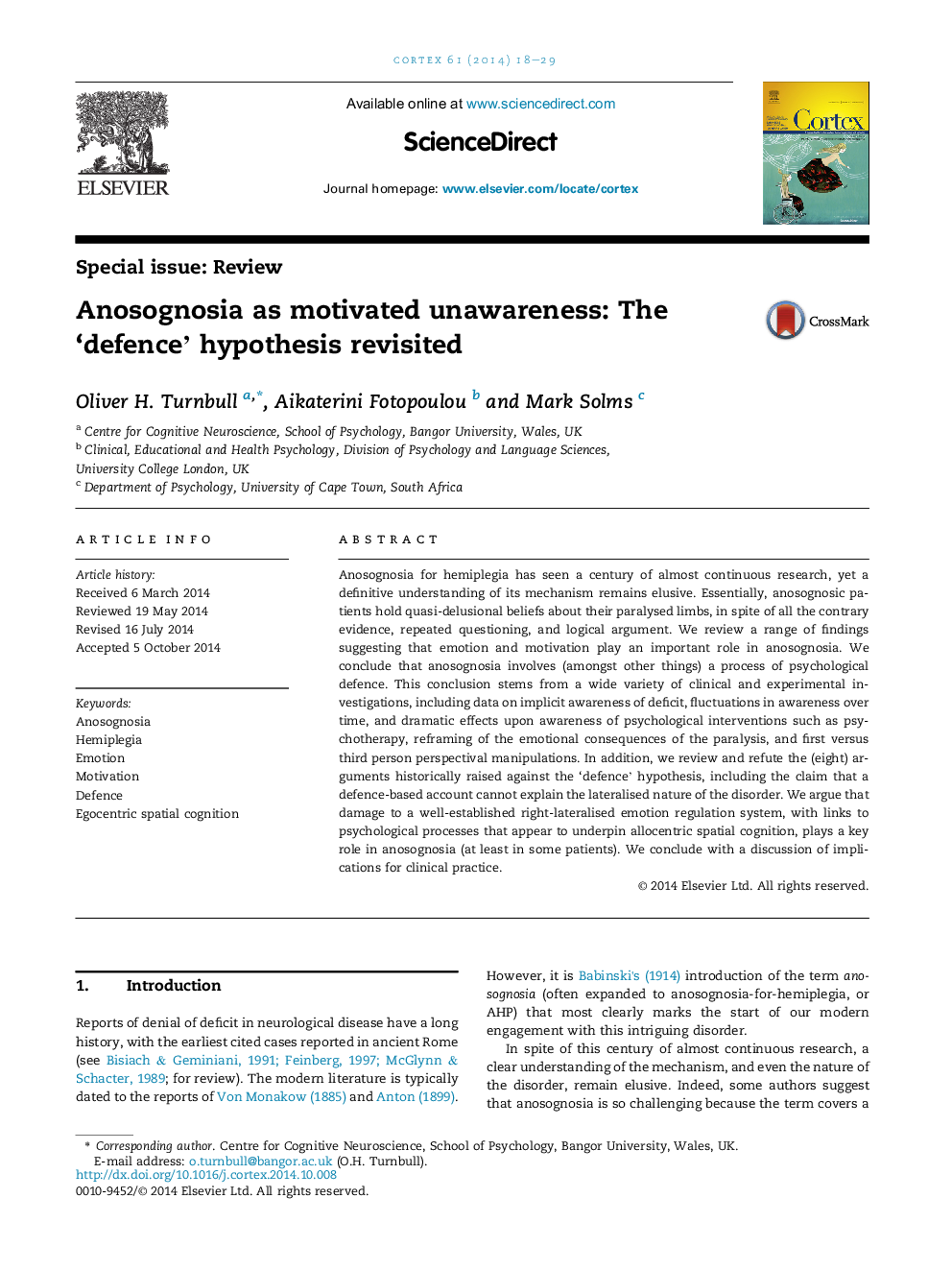| کد مقاله | کد نشریه | سال انتشار | مقاله انگلیسی | نسخه تمام متن |
|---|---|---|---|---|
| 7315037 | 1475471 | 2014 | 12 صفحه PDF | دانلود رایگان |
عنوان انگلیسی مقاله ISI
Anosognosia as motivated unawareness: The 'defence' hypothesis revisited
دانلود مقاله + سفارش ترجمه
دانلود مقاله ISI انگلیسی
رایگان برای ایرانیان
کلمات کلیدی
موضوعات مرتبط
علوم زیستی و بیوفناوری
علم عصب شناسی
علوم اعصاب رفتاری
پیش نمایش صفحه اول مقاله

چکیده انگلیسی
Anosognosia for hemiplegia has seen a century of almost continuous research, yet a definitive understanding of its mechanism remains elusive. Essentially, anosognosic patients hold quasi-delusional beliefs about their paralysed limbs, in spite of all the contrary evidence, repeated questioning, and logical argument. We review a range of findings suggesting that emotion and motivation play an important role in anosognosia. We conclude that anosognosia involves (amongst other things) a process of psychological defence. This conclusion stems from a wide variety of clinical and experimental investigations, including data on implicit awareness of deficit, fluctuations in awareness over time, and dramatic effects upon awareness of psychological interventions such as psychotherapy, reframing of the emotional consequences of the paralysis, and first versus third person perspectival manipulations. In addition, we review and refute the (eight) arguments historically raised against the 'defence' hypothesis, including the claim that a defence-based account cannot explain the lateralised nature of the disorder. We argue that damage to a well-established right-lateralised emotion regulation system, with links to psychological processes that appear to underpin allocentric spatial cognition, plays a key role in anosognosia (at least in some patients). We conclude with a discussion of implications for clinical practice.
ناشر
Database: Elsevier - ScienceDirect (ساینس دایرکت)
Journal: Cortex - Volume 61, December 2014, Pages 18-29
Journal: Cortex - Volume 61, December 2014, Pages 18-29
نویسندگان
Oliver H. Turnbull, Aikaterini Fotopoulou, Mark Solms,